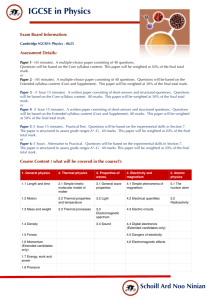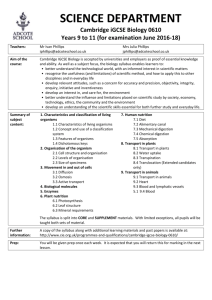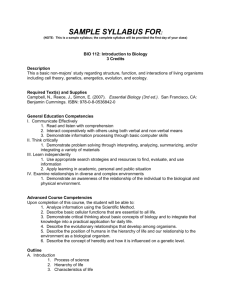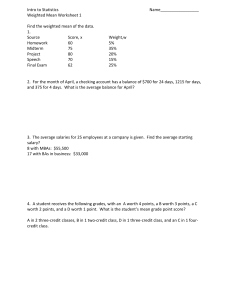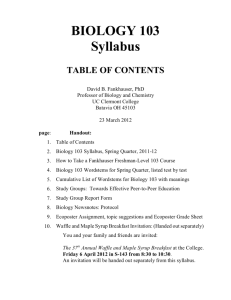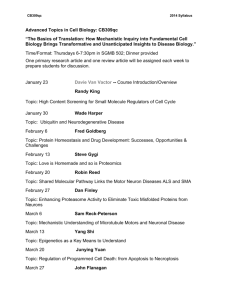IGCSE IN BIOLOGY
advertisement
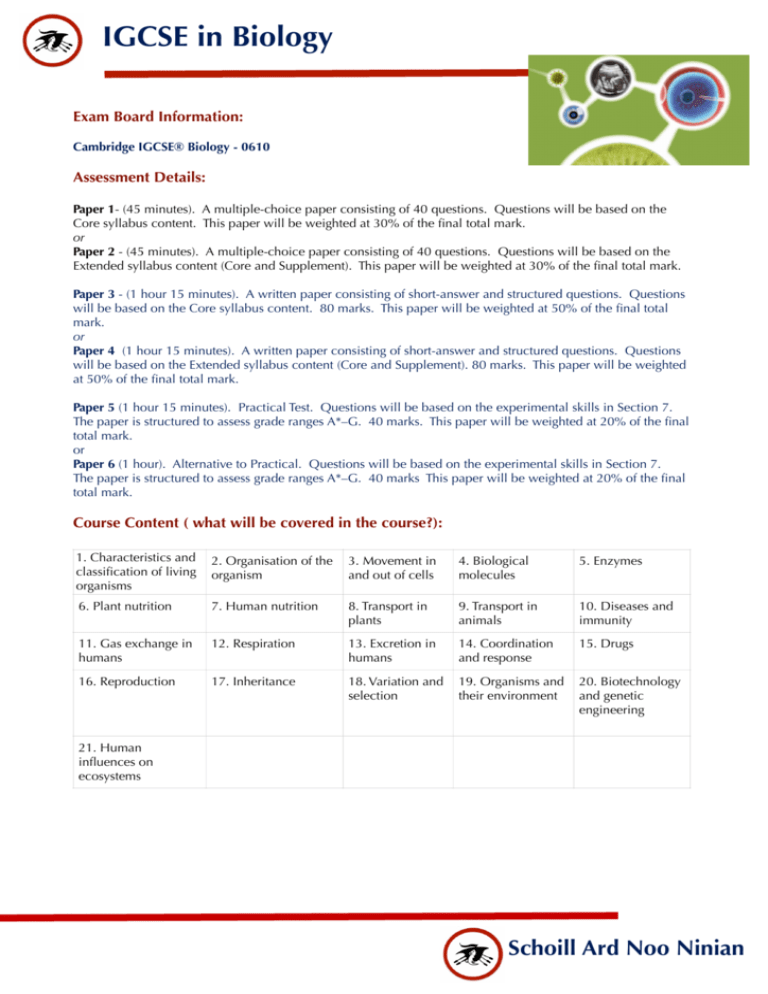
IGCSE in Biology ! ! Exam Board Information: ! ! Assessment Details: ! Cambridge IGCSE® Biology - 0610 Paper 1- (45 minutes). A multiple-choice paper consisting of 40 questions. Questions will be based on the Core syllabus content. This paper will be weighted at 30% of the final total mark. or Paper 2 - (45 minutes). A multiple-choice paper consisting of 40 questions. Questions will be based on the Extended syllabus content (Core and Supplement). This paper will be weighted at 30% of the final total mark. ! Paper 3 - (1 hour 15 minutes). A written paper consisting of short-answer and structured questions. Questions will be based on the Core syllabus content. 80 marks. This paper will be weighted at 50% of the final total mark. or Paper 4 (1 hour 15 minutes). A written paper consisting of short-answer and structured questions. Questions will be based on the Extended syllabus content (Core and Supplement). 80 marks. This paper will be weighted at 50% of the final total mark. ! Paper 5 (1 hour 15 minutes). Practical Test. Questions will be based on the experimental skills in Section 7. The paper is structured to assess grade ranges A*–G. 40 marks. This paper will be weighted at 20% of the final total mark. or Paper 6 (1 hour). Alternative to Practical. Questions will be based on the experimental skills in Section 7. The paper is structured to assess grade ranges A*–G. 40 marks This paper will be weighted at 20% of the final total mark. ! Course Content ( what will be covered in the course?): ! 1. Characteristics and classification of living organisms 2. Organisation of the organism 3. Movement in and out of cells 4. Biological molecules 5. Enzymes 6. Plant nutrition 7. Human nutrition 8. Transport in plants 9. Transport in animals 10. Diseases and immunity 11. Gas exchange in humans 12. Respiration 13. Excretion in humans 14. Coordination and response 15. Drugs 16. Reproduction 17. Inheritance 18. Variation and selection 19. Organisms and their environment 20. Biotechnology and genetic engineering 21. Human influences on ecosystems !! ! Schoill Ard Noo Ninian What skills will be developed during the course? ! • • • • • • • • • knowledge and understanding of the material, physical and living worlds understanding of the nature of science and its applications and the inter relationships between science and society an understanding of the importance of scale in science application of knowledge and understanding of the scientific process through hypotheses, theories and concepts understanding of the relationships between hypotheses,evidence, theories and explanations awareness of risk and the ability to assess potential risk in the context of potential benefits application of observational, practical, enquiry and problem-solving skills and understanding in laboratory, field and other learning environments ability to evaluate claims based on science through critical analysis of the methodology, evidence and conclusions develop their skills in communication, mathematics and the use of technology in scientific contexts. ! Career opportunities with this qualification: ! Take control of your future Biology offers a wide range of career options and opportunities for school-leavers, graduates, postgraduates. Whichever stage of your career you're at - from deciding whether to study biology at school, college or university, to working out what to do after you graduate - the Society of Biology is here to help. ! Working as a biologist First of all, there's no such thing as a typical biologist. Entering a career in biology could take you in almost any direction you can think of, and to anywhere in the world. ! For further information, please contact: For further information speak to Miss Bridgewater or one of your Science teachers. Additional information can be found on the web at http://www.cie.org.uk/programmes-and-qualifications/cambridge-igcse- biology-0610/ !
